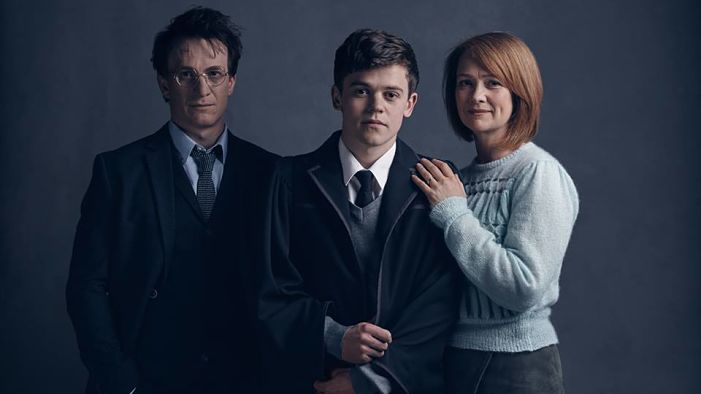I Don’t Need The Cursed Child

A claim this bold requires some credentials.
To say “I love Harry Potter” falls far short of the truth. I am made of Harry Potter. I was raised by J.K. Rowling. My heart is always in two places: where I actually am and the chair in front of the fire in the Gryffindor common room. Had those books not been published, I would be someone else. (Someone, I suspect, less devoted to the virtues found in those books.)
But nothing whatsoever could induce me to see, read, or develop an opinion about The Cursed Child, which opens for previews in London this week.
It’s not that theater is elitist and boring; I would never publicly admit to thinking that.
And it’s not that I doubt good old Jo’s ability to tell adult stories; as it happens I am reading through the third book in her “Cormoran Strike” mystery series right now. (It is quite good, and it’s nice to see her having such obvious fun.)
But the story of grown-up Harry, Ron, and Hermione and their grown-up troubles could only detract from my relationship to the most important story of my life. Something is inherently, automatically lost by carrying those characters in adulthood, because it leaves the author with only two options:
1. To give a children’s version of adult problems, which nearly always renders them sanitized and dishonest.
2. (And this is much more frightening) To delve into the darkness, fatigue, and moral confusion that really does characterize a lot of adulthood (spoilers!).
And I just don’t need it. I don’t need to see an alcoholic, middle-aged Ron, resentful of his wife’s success. I don’t need to see a frazzled Hermione, disappointed in her own choices. And I don’t need to see Harry trying to remain close with a son that HE HIMSELF CHOSE TO NAME after the Professor who was his primary tormentor for seven years.
It’s not that those things aren’t realistic. They’re all too realistic. And sad. And predictable. And if those are the lessons I want, I have plenty of places to get them. Even plenty of beloved fantasy series. The Magicians gently, excellently takes the training wheels off Hogwarts morals and puts them in a realer world. And Game of Thrones makes it plenty clear that the presence of dragons does not rob the world of its cruelty. I come back to Harry again and again because I could use a simpler tale.
The “Harry Potter” books are children’s stories. That’s not a slur! They remain so potent to us as adults because we occasionally need to return to a moral universe defined by house colors, rather than shades of gray.
I am a Gryffindor. I think, more than any other house, it is hardest to stay a Gryffindor as an adult, because bravery becomes a difficult virtue to live by the more you have to lose. It’s easy (and sometimes unavoidable) to lose your courage because you are broke or lost or just exhausted. One of the most important strategies I have learned to keep myself from reaching that state is to protect my mind and heart from things that won’t nourish them. I don’t read about every fresh horror in the news, I don’t engage in every pointless battle on Twitter, and I don’t hang on to every story to its “dark, gritty” conclusion. A few years ago, I wrote about my decision not to watch Skins: Fire, the monumentally awful conclusion to a story that meant a lot to me. I don’t regret abstaining from that, because it allowed me to keep the happy ending. The ending I need.
So while I would never join the crowds of hecklers telling Jo to hang up her writing slippers (it’s her story and she can go where she wants with it), I have to do what is best for me. And that means letting my version of Harry’s story end on Platform 9 3/4.
I protect myself from certain things because that’s what I have to do to stay brave, to stay hopeful, to stay the person Harry Potter made me.
(I’m gonna watch the hell out Fantastic Beasts, though.)












